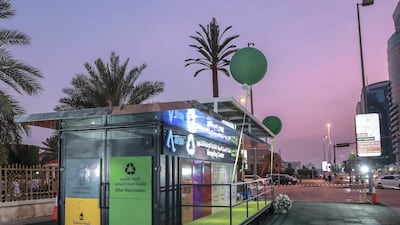In 2006, Andrew Simms at the New Economics Foundation, dreamt up the concept of Earth Overshoot Day. It was meant to measure the planet's ability to renew its resources year-on-year against human consumption, a way to illustrate how much we overshoot the environment. That year, the date fell in October. Last year, it moved to August 1.
In addition to us tearing through what the planet offers faster and faster, Forbes reported in 2017 that, around the world, one million plastic bottles were purchased every minute. Of that, barely 90,000 will be recycled. Horrified? You should be. Thankfully, however, all of us can help solve this problem. All we have to do is get involved.
Given that one plastic bottle takes 500 years to break down (plastic does not decompose, but rather degrades into ever smaller particles), it makes sense to recycle it, rather than throw it away. Recycling uses less energy, reuses precious resources and is a better idea than throwing something into landfill.
Long-term, of course, reducing the use of plastic is the only answer. However, if that feels too difficult, it is possible to contribute straight away by ensuring that the plastic we do use is effectively recycled.
Support Global Recycling Day
One easy way is to support Global Recycling Day, an initiative now in its second year, developed by Ranjit S Baxi's Global Recycling Foundation. The organisation has one very clear goal: to try and get as many people as possible motivated to get out and help. "The role of the Foundation is to show the world that recycling is a collective endeavour, crucial for the future of the planet," the company's website says.
The site is filled with ideas on how to make a difference, from organising school clean-up days to sharing the results on social media. Importantly, however, the message is about spreading awareness, so that recycling becomes an everyday habit, rather than something to do occasionally.

Global Recycling Day is supported by the United Nations – in fact, Baxi is hoping the event makes it to the official UN calendar – and the former head of UN Environment, Erik Solheim, is also backing the scheme. "We need to see waste for what it really is – a wasted resource," he says. "There is no place on our planet any more for products that are used only briefly and thrown away. We need to ensure planned obsolescence is a thing of the past. It's time for countries to dramatically step up recycling rates if we are to save this planet."
Despite being a little sluggish about recycling at first, things are now picking up steam, in typical UAE style, with the arrival of smart recycling centres around the country last year and an extra 100 recycling units on Dubai's Sheikh Zayed Road.
Use the HomeCycle app
A clever app called HomeCycle makes things even easier. The brainchild of John van Zuylen, HomeCycle lets people in Dubai book a recycling pickup that will come right to your home or office. Free and easy to use (there is also a website), the app requires you simply to sign up and book a collection. As well as helping the environment, users will earn points that can be used to donate to charities, or that can even be used to redeem discount vouchers.
One early adopter was MonViso, the Italian water company that recycled 400,000 bottles in 2018. The app is designed to make recycling accessible to everyone, and van Zuylen says it has never been more relevant. "HomeCycle is perfectly aligned with the Vision 2021 of Sheikh Mohammed bin Rashid Al Maktoum [Vice President and Ruler of Dubai] to divert 75 per cent of waste from landfill," he says. "The idea is really to help the industry to reduce its plastic footprint by making all residents and companies part of the move."
Events to attend
The UAE has also stepped up in other ways, big and small. For example, Abu Dhabi Waste Management Centre Tadweer recycled close to 7,000 tonnes of used vehicle tyres last year, while the capital also has recycling plants for plastic products, construction and demolition waste, as well as used engine oil. Last year, more than 50 restaurants pledged to ban plastic straws on their premises, while others offered patrons a discount if they brought their own cutlery and crockery.
On Saturday, Dubai will host the Good Food Fight, for those who yearn to live a waste-free life. The idea behind this guided walking tour around JLT is to visit three eateries in the area, taste three dishes created from "kitchen scraps", and learn from experts how to transform leftovers into meals. "We wanted to draw attention to the issue of food waste and show people how easy it is to avoid," explains Stephanie Mahmoud, one of the Food Trail presenters and creator of this experience. "Avoiding food waste is an age-old skill, and we would go so far as to even say it's an art form. We're taking some old-school ideas and updating them for contemporary living, and we're using historical context to help us solve a modern-day problem."
Designed by Frying Pan Adventures (part of the Global Food Tourism Association), Good Food Fight's aim is to introduce regional cuisines to a wider audience, and create tasty food that does not waste anything. Sounds like a lesson we could all benefit from.

